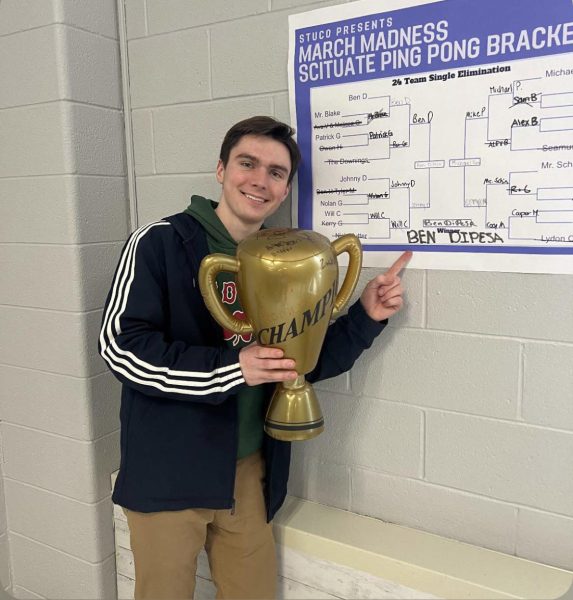Boston University Studies the Mental Wellness of the Community
March 14, 2016
Scituate, Massachusetts, appears to be a small, quiet, coastal town in the heart of the South Shore. Its peaceful appearance masks an underlying issue among students ranging from middle school to high school: sky high stress levels and emotional troubles. Recently, Dr. Jennifer Green and her team from Boston University have collaborated with Scituate schools to create a three year study on the behavior and mental health of teachers, students, and even parents. Dr. Green is an assistant professor at Boston University at the School of Education. She specializes in studying the emotional and behavioral patterns of students through survey-based evidence. From this evidence, she can provide guidance, support, and services to the schools whose students show need.
Dr. Green not only follows the mental health of students, but she also studies teachers and parents as well. Scituate parents received an email explaining the nature of the study, assuring them that the content of the survey is in the very best interest of their children, the students. This email states that the survey is completely voluntary for the students to take, as the content includes sensitive questions about the habits, relationships, and personal life of the student body.
Some students questioned whether or not they actually had a choice in participating in the study. 8th grader Kate Short described the experience as being involuntary, saying that instead of having class, students went to their “Enrichment Block” classrooms to take the survey on computers. According to Short, one of her teachers even stood behind her, watching her answer the questions that were supposed to be personal and also anonymous.
In the high school, students stayed in their home base classes during “H Block,” a twenty minute free period in the middle of the day meant for students to do homework, see teachers, or take a break from classes. Many students said their teachers wouldn’t let them leave the classroom, and they were then forced to take the survey. Some teachers didn’t make it clear to students that the survey was voluntary, and student could skip any questions they didn’t want to answer. There was a script given to teachers that was meant to properly introduce the survey and the goal of the study as a whole. This script stated that the survey was completely optional.
Some of the questions on the survey inquired about student behavior and relationships, prompting the participants to consider their concentration and coping methods for stress. Scituate High School psychologist Joan Struzziero explained the goals of the study from her point of view. According to Struzziero, Dr. Green and her team have created a three year plan to observe the behavioral patterns of Scituate students, teachers, and parents. The study’s longevity will provide an idea of the state of the Scituate community, and this evidence will allow the observers to provide guidance and advice to improve the overall wellness of the lives of Scituate students, parents, and educators.









